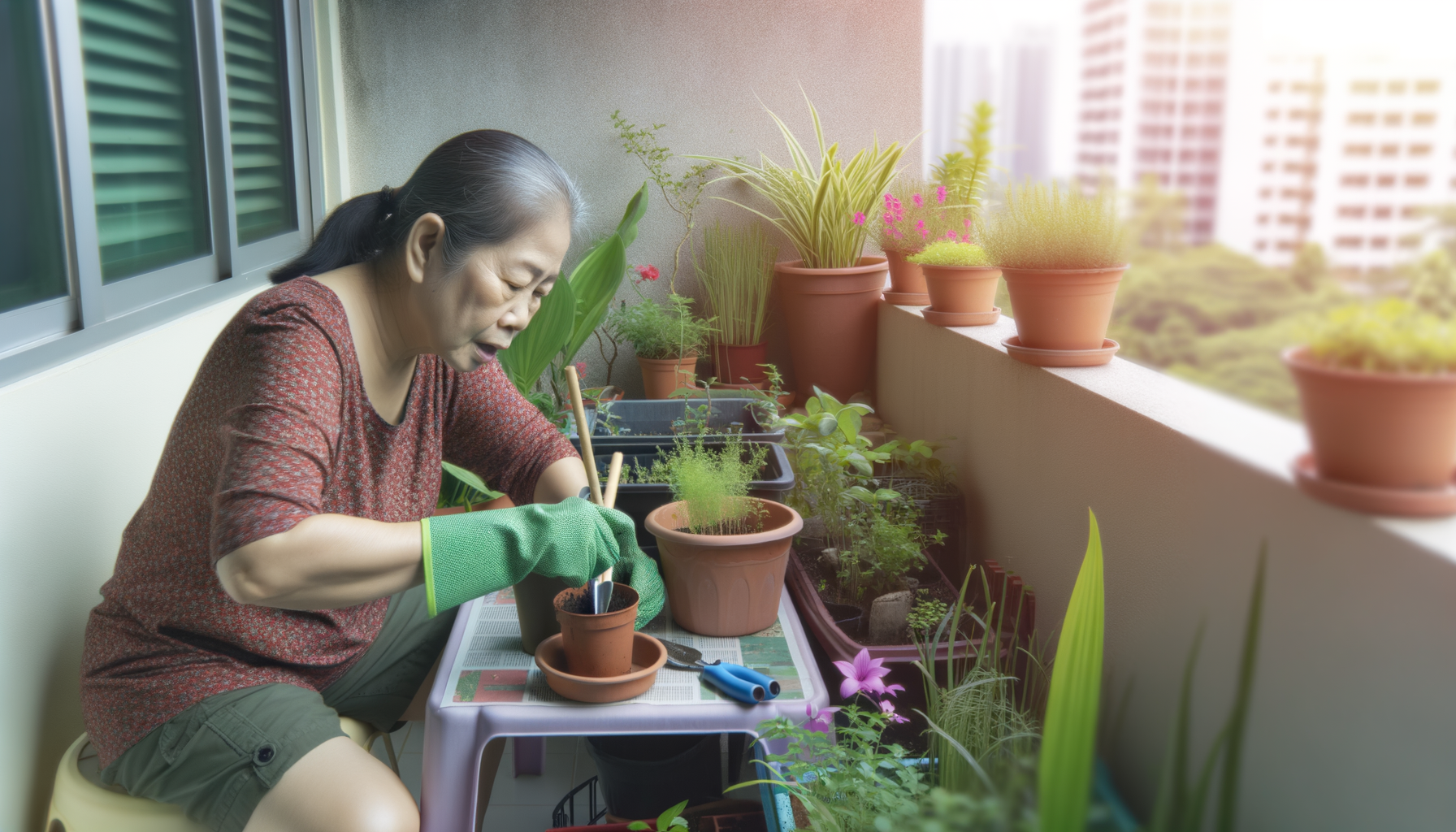Menopause and Perimenopause
Menopause is a natural biological process that marks the end of a person’s menstrual cycles, signifying the cessation of reproductive capability. It is diagnosed after 12 consecutive months without a menstrual period. Perimenopause, on the other hand, is the transitional phase leading up to menopause, where hormonal fluctuations can cause irregular menstrual cycles and various other symptoms. This period can be a time of significant change for many, with a range of physical and emotional effects.
Prevalence and Age Range
Menopause typically occurs between the ages of 45 and 55, with some experiencing it earlier due to natural variations, medical interventions, or treatments such as chemotherapy. Perimenopause can begin several years prior, with its onset varying greatly among individuals. It’s estimated that 13 million women in the UK are currently navigating through these stages, highlighting the widespread impact of this life transition.
Symptoms and Their Variability
The symptoms of menopause and perimenopause are diverse and can vary significantly from person to person. Approximately three-quarters of women experience symptoms, with a quarter facing severe manifestations. Common symptoms include:
- Mental health challenges (e.g., low mood, anxiety, low self-esteem)
- Cognitive difficulties (e.g., problems with memory and concentration)
- Hot flushes
- Sleep disturbances
- Muscle aches and joint pains
- Changes in body shape and weight gain
These symptoms can have a profound impact on daily life and overall well-being.
Duration of Menopausal Symptoms
The duration of menopausal symptoms varies widely among individuals. Some may experience symptoms for a few years, while others may endure them for over a decade. Dr. Louise Newson, a menopause expert, reports that patients have described symptom durations ranging from a couple of years to more than 30 years. This variability necessitates a personalized approach to managing the menopausal transition, including both medical and holistic strategies.
Medical Approaches to Menopause Management
Role of General Practitioners
General Practitioners (GPs) play a crucial role in the initial assessment and management of menopause and perimenopause symptoms. They are often the first point of contact for individuals seeking help for menopausal symptoms, which can range from hot flushes and difficulty sleeping to muscle aches and mood changes. GPs assess these symptoms, consider medical history, and may conduct or order tests to rule out other conditions. They also provide valuable information on treatment options and lifestyle adjustments that can alleviate symptoms. In England, approximately 15% of women aged 45-64 are currently prescribed Hormone Replacement Therapy (HRT) by their GPs to help manage menopausal symptoms.
Hormone Replacement Therapy (HRT)
HRT is a widely used treatment for menopause symptoms that involves supplementing the body with estrogen, and sometimes progesterone, to counteract the decline in hormone levels. HRT can be highly effective in relieving many of the common symptoms of menopause, such as hot flushes, night sweats, and vaginal dryness. It may also help prevent osteoporosis. However, HRT is not suitable for everyone, and the decision to use it should be made on an individual basis, considering the potential benefits and risks. It is essential for individuals to have an informed discussion with their GP or a menopause specialist to determine if HRT is the right choice for them.
Importance of a Holistic Approach
While medical treatments like HRT can be beneficial, Dr. Louise Newson, a Menopause Expert, emphasizes the importance of a holistic approach to menopause management. This approach includes not only medical interventions but also lifestyle modifications such as exercise, diet, and mental health care. Gardening, for instance, has been recognized for its therapeutic benefits, offering both physical and mental health advantages. A holistic approach addresses the multifaceted nature of menopause, aiming to improve overall quality of life rather than just alleviating individual symptoms. Integrating activities like gardening into a menopause management plan can provide a natural and accessible way to support wellbeing during this transitional period.
Gardening as a Holistic Support Strategy
Expert Opinions on Gardening and Mental Health
Renowned experts like Dr. Louise Newson, a menopause specialist, emphasize the importance of a holistic approach to managing menopause, which includes nurturing mental health through activities such as gardening. Dr. Newson suggests that gardening can be a therapeutic endeavor, offering a respite from menopausal symptoms by fostering a sense of calm and accomplishment. Similarly, Dr. Fiona MacRae, an integrative women’s health specialist, acknowledges gardening as a source of genuine relief during the stressful times of menopause, providing an outlet for emotional expression and the cultivation of healthy habits.
Physical Benefits of Gardening
Gardening is not just a pastime but a form of light physical exercise that can help maintain muscle strength and bone health, crucial during the menopausal transition. The physical movements involved in gardening, such as digging, raking, and planting, act as resistance exercises and aerobic training. This activity can help prevent weight gain and chronic diseases, which are concerns during menopause. Moreover, gardening can play a significant role in preventing osteoporosis by strengthening cartilage tissue and bones, while also providing exposure to sunlight for adequate vitamin D absorption, essential for overall health and well-being.
Accessibility of Gardening for Health
Gardening’s beauty lies in its accessibility; it is an activity that can be adapted to any living situation. Whether one has a sprawling backyard or a modest balcony, the benefits of gardening can still be reaped. Organizations like Thrive have been advocating for the health benefits of gardening for decades, underscoring that a large space is not a necessity. Even a windowsill can serve as a mini-garden, allowing individuals to engage with nature and experience the therapeutic effects of gardening. The inclusion of specific plants such as lavender, chamomile, and aloe vera can enhance the stress-relieving benefits, contributing to a serene ambiance and improved sleep quality.
In conclusion, gardening offers a holistic support strategy for those navigating the challenges of menopause. It provides physical benefits, mental health improvements, and is accessible to all, making it an invaluable companion during this significant life transition.

Bette 100% All-Natural Relaxing Lavender Body Lotion.
Chemical-Free
Your relaxing night time body moisturizer to leave the day’s stress behind. Decompress and wish your body good night with the calming scent of lavender.
Psychological Benefits of Gardening During Menopause
Improving Mood and Self-esteem
Menopause can often bring about a shift in mood and a decrease in self-esteem. Gardening, however, offers a natural and therapeutic way to enhance mood and boost self-confidence. The act of nurturing plants and witnessing their growth can instill a sense of accomplishment and pride. Dr. Louise Newson, a menopause expert, emphasizes the importance of finding activities that bring joy and improve mental health during this time. The vibrant colors, fragrances, and the very act of creating life can have a profound effect on one’s mood, providing a positive focus and a tangible sense of achievement.
Reducing Anxiety and Stress
Stress and anxiety are common symptoms during menopause, often exacerbated by hormonal fluctuations. Gardening provides a peaceful retreat from daily pressures, offering a space for relaxation and mindfulness. The repetitive nature of gardening tasks such as planting, weeding, and watering can be meditative, helping to divert negative thoughts and reduce stress levels. Moreover, the presence of certain plants like lavender and chamomile, known for their calming properties, can further enhance the stress-relieving benefits of a garden.
Enhancing Memory and Concentration
Menopause can affect cognitive functions, leading to issues with memory and concentration. Gardening requires attention to detail and planning, which can help sharpen cognitive abilities. The sensory stimulation from the diverse textures, scents, and colors in a garden can also aid in maintaining mental clarity. Engaging with nature has been shown to improve concentration and memory, making gardening an ideal activity for those looking to support their cognitive health during menopause.
In conclusion, gardening offers a multitude of psychological benefits that can support individuals through the challenges of menopause. By improving mood, reducing stress, and enhancing cognitive functions, this holistic activity serves as a valuable companion during this significant life transition.
Physical Health and Gardening
Alleviating Muscle Aches and Joint Pains
Gardening is not only a peaceful and productive hobby but also a form of low-impact exercise that can help alleviate muscle aches and joint pains often associated with menopause. The physical movements involved in gardening, such as digging, planting, and weeding, can improve flexibility and strengthen muscles without overstraining them. This gentle form of exercise can be particularly beneficial for maintaining joint health and reducing stiffness. Additionally, the exposure to sunlight while gardening increases Vitamin D levels, which is essential for bone health and can help prevent osteoporosis, a common concern during menopause.
Managing Weight and Body Shape Changes
Menopause often brings changes in weight and body shape, which can be frustrating and challenging to manage. Gardening offers a unique combination of physical activity and stress reduction that can help manage these changes. Engaging in the regular, moderate exercise provided by gardening activities can help burn calories and maintain a healthy weight. Moreover, the satisfaction of nurturing a garden can promote a positive body image and self-esteem, helping women embrace their changing bodies with grace and confidence.
Improving Sleep Quality
Many women experience difficulty sleeping during menopause, which can affect overall health and well-being. Gardening can contribute to improved sleep quality through multiple avenues. The physical exertion associated with gardening can help to naturally tire the body, making sleep more inviting. Furthermore, the calming effect of being in nature and the mental relaxation that comes from focusing on gardening tasks can ease the mind and reduce stress, leading to better sleep. Incorporating certain plants known for their sleep-inducing properties, such as lavender and chamomile, into your garden can also create a more restful environment.
In conclusion, gardening is a multifaceted activity that can significantly benefit physical health during menopause. It provides a natural way to combat muscle and joint discomfort, manage weight, and improve sleep, all of which are crucial for maintaining a high quality of life during this transition. Whether in a sprawling backyard or a modest container garden, the act of tending to plants can be a powerful ally in navigating the physical challenges of menopause.

Practical Gardening Tips for Menopausal Wellbeing
Starting Small: Balconies and Windowsills
Embarking on a gardening journey doesn’t require a vast expanse of land. Starting small is key, especially for those new to the practice or with limited space. Utilize balconies and windowsills to cultivate a personal green oasis. This approach is not only manageable but can also yield a surprising amount of joy and produce. Consider growing strawberry plants in hanging pots or baskets, which are not only easy to maintain but also provide Vitamin D—a vital nutrient during menopause. Similarly, herbs like garlic, onion, and chive from the alium family can thrive in small containers and offer health benefits for menopausal women.
Choosing the Right Plants
Selecting the right plants is crucial for a menopause-friendly garden. Opt for nutritional plants that support a menopause diet, such as chickpeas, which are rich in magnesium and can be easily grown from sprouted seeds. Additionally, incorporate plants that require minimal maintenance but offer maximum sensory pleasure. Fragrant options like lavender, mint, and rosemary can create a calming atmosphere, while clematis, sweet peas, and jasmine add delightful scents to your garden sanctuary.
Creating a Gardening Routine
Establishing a consistent gardening routine can provide structure and a sense of accomplishment. Planting in pots can simplify the process by reducing the need for weeding and allowing for flexibility in garden placement. Ensure proper drainage by adding stones or broken pottery to the bottom of pots. Regular watering and care will not only nurture your plants but also provide a daily ritual that can ground and center you during the menopausal transition.
Incorporating Mindfulness Practices
Gardening is an ideal activity for integrating mindfulness practices. Create a dedicated space within your garden for relaxation, such as a small terrace or a grassy nook for yoga, reading, or simply enjoying the tranquility. The act of tending to your garden can become a meditative practice, allowing you to focus on the present moment and the sensory experiences of gardening. Embrace the peacefulness of your surroundings, and consider adding elements like a soothing water feature or a comfortable seating area to enhance the restorative effects of your garden.
In conclusion, gardening can be a powerful ally during menopause, offering both physical and psychological benefits. By starting small, choosing the right plants, creating a routine, and incorporating mindfulness, you can transform your garden into a source of nourishment and serenity. Whether you have a sprawling backyard or a modest balcony, these practical tips can help you cultivate a space that supports your wellbeing through menopause and beyond.
By the way, something for you, a little gift!!!
I am just in the middle of publishing my book. It’s about How women can balance their hormones. One part is about food and diet, of course.
Follow this link and enter your email.
I will send you this part of the book for free once the book is published. It has many concrete, practical tips and recipes and will help you feel better during menopause or times of Big hormonal fluctuations.
Annette, Damiva Lead for Health & Wellness

Conclusion: Embracing Gardening as a Companion Through Menopause
Summarizing the Benefits of Gardening
Gardening has emerged as a sanctuary for many during the tumultuous period of menopause. As we have explored, this natural practice offers a multitude of benefits that cater to both physical and psychological health. The act of nurturing a garden provides a gentle form of exercise, crucial for maintaining muscle strength and bone health, which is particularly important as the risk of osteoporosis increases during menopause. The exposure to sunlight while gardening not only aids in Vitamin D absorption but also helps in regulating sleep patterns, which can be disrupted during this phase of life.
Psychologically, gardening is a balm for the soul. It encourages mindfulness, allowing individuals to immerse themselves in the present moment, thus reducing stress and anxiety. The sense of achievement in watching something grow can significantly boost self-esteem and mood, providing a positive impact on mental well-being. Moreover, the social aspect of gardening can foster a sense of community and support, which is invaluable during times of emotional upheaval.
Furthermore, the strategic selection of plants such as lavender, chamomile, and aloe vera can enhance the stress-relieving effects of gardening. These plants are not only therapeutic to care for but also offer direct benefits such as improved sleep quality and relaxation.
Encouraging Continued Research and Practice
While the anecdotal and scientific evidence supporting the benefits of gardening during menopause is compelling, there is always room for further research. Continued studies can deepen our understanding of how gardening and interaction with specific plants can alleviate menopausal symptoms. This knowledge can lead to more targeted recommendations for individuals looking for natural ways to manage their menopause journey.
Practicing gardening as a form of self-care during menopause is not just about symptom management; it’s about enhancing overall quality of life. As such, it is crucial to encourage those going through menopause to consider incorporating gardening into their routine. Whether it’s tending to a vast vegetable garden or nurturing a collection of potted plants on a windowsill, the act of gardening is a step towards holistic well-being.
In conclusion, as we recognize the challenges that menopause presents, it is heartening to know that gardening stands as a powerful ally. It is a companion that offers solace, strength, and growth—both literally and metaphorically. By embracing gardening, individuals can navigate through menopause with grace, finding tranquility and joy in the soil and soul alike.










